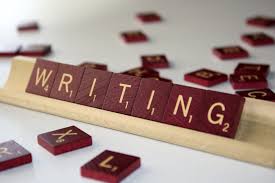
I have been on such a steep learning curve the last few months, many days my head hurts with all the information. Other days, I feel like I can fly.
I’ve done a lot of reviews lately because I love to help others the way I have been helped. Many are Indie writers, just like me, struggling to get their books out into the world. I see myself in a lot of what I’ve been reading - at least the self before my mentors took me in hand and said such things as “meh” and “I don’t think you ever met an adjective you didn’t like” and “do you always write in such long sentences?” Harsh? Maybe, but not mean. My skin thickened. I realized that their comments were meant to make me stronger, to make my writing better. The net effect of those comments sent me back to the keyboard. As a result of the no-holds barred critiques, my writing became cleaner and easier to read and I learned to build tension without the aid of a bagful of adjectives.
In a nutshell, here is what I have learned!
Start the story with action. Books that start with a lot of backstory tend to get discarded quickly.
Ditch the adjectives and adverbs and chose stronger nouns and verbs. Watch out for vague descriptives like “seemed” and “impossibly.” Example: “She had impossibly blue eyes.” Really? How is that possible?
Watch out for repetitive words. They catch the attention and slow the flow. I’ve been caught using the same word four times in one paragraph! It took a fresh pair of eyes to point it out.
Vary the length of sentences.
Description is important to establish the scene. Keep it short and filter it into the scene so that it is part of the action.
SHOW DON’T TELL! This can be a tough one, but it makes such a huge difference to the strength of the story-telling. Is he angry? Slam his fist on the desk, drag his hand through his hair. We don’t need dialogue tags like ‘he said angrily’ or the narrator to tell us, if his own actions show us.
Point of view! While multiple points of view in a scene can be done successfully by the skillful writer, most of us aren't there yet. “Head-hopping” is confusing to the reader, especially if the POV changes within the same paragraph. Picking a point of view and sticking with it can ramp up the tension exponentially. It’s closer to reality.
In a related vein, I have noticed lately the tendency in more than one book, to have the dialogue of two different people in the same paragraph, or the dialogue of one person and the reaction of another in the same paragraph (without benefit of names). Very confusing to the poor reader.
Minimize long paragraphs. They create a subconscious stumbling block for the reader. Personally, when I read, I like to savour every word. When I come across a paragraph that stretches down the page my first reaction is “Nuts!” because I have to wade through it and getting lost half way through the paragraph is a real danger. I don’t like to have to stop the flow of my reading to go back and re-read something in order to understand. It’s different if I re-read a sentence because of its beauty or wit. When I get confused about what is happening, who is speaking, how a detailed description of the innards of a piece of equipment relate, I want to skip past. Not all long paragraphs are bad, but definitely limit them!
Limit the number of main characters and trickle in the introduction of secondary characters. Especially at the beginning of a book. Too many all at once can be overwhelming.
No clichés! Half the joy of writing is discovering new ways of saying old ideas.
For science fiction and fantasy writers, I love the world-building and admire the complicated names, but sometimes I feel like they are complex for their own sake and not to enhance the story. Just sayin’. And when objects are introduced with the language of the new world, a little description for we ignorant human/earthlings would help us a lot. I love this genre, but I love it best when it is written with less pretension and loftiness and more respect for the reader.
To close, I have a list from my last mentor. It is still taped to my keyboard. Three important elements of every scene: camera focus (vary it); establishing shot (to place the reader in the scene) and what does the protagonist want or feel (keep reminding the reader what are the stakes for people in your story.) Through my avid reading of writing blogs, I have added one more: the three levels of want (when developing your protagonists and antagonists ask yourself 3 times what the character wants, each time going deeper. It will add greater dimension when you write your character’s scenes.)
There’s my nutshell! Is it more like a coconut?
What have I missed? What suggestions do you have or have taken that has improved your writing?
 RSS Feed
RSS Feed
